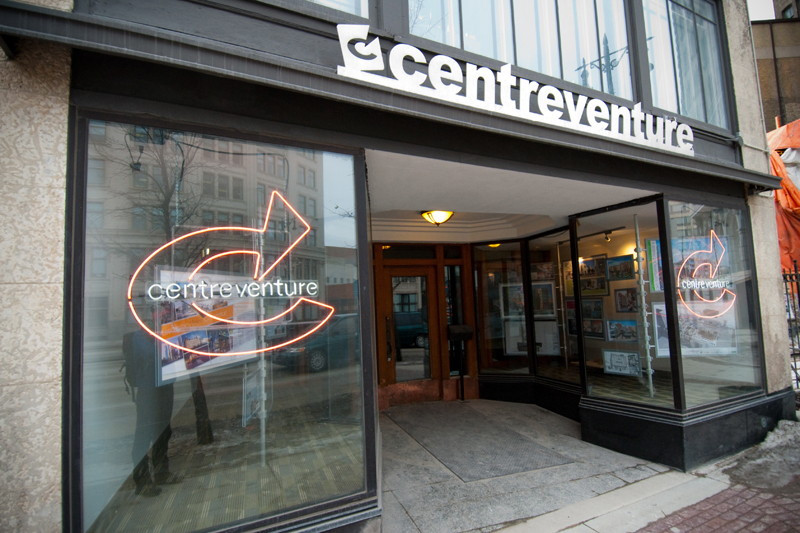Centre Venture business plan approved by executive committee
Local blogger says the two-year revitalization plan will fail
Centre Venture development corporation will start work on a “master plan” to revitalize Portage Avenue now that Winnipeg’s executive policy committee of council has approved their 2011-2013 business plan, which received unanimous support on March 9.
“We’re encouraging and we’re facilitating and, hopefully, we will go one step further by financing those developments,” said Ross McGowan, the president and CEO of Centre Venture.
The business plan laid out some of the cost estimates of a development strategy that will shift Centre Venture’s emphasis from Main Street to Portage Avenue by re-orienting the area as a sports, hospitality and entertainment district (SHED).
“We consulted with the senior representatives of the two levels of government involved and ... all the major stakeholders in the downtown,” said McGowan of the SHED development plan.
The plan outlines Centre Venture’s role in encouraging revitalization of the former A & B Sound building into a commercial development and hotel, the creation of a skywalk connecting the University of Winnipeg and Portage Place Shopping Centre, the redevelopment of the Metropolitan Theatre into a rock n’ roll “destination centre” as well as a public square near the MTS Centre.
The full SHED development plan should be released in the next two to three months, McGowan said.
However, the EPC has approved some of the principal details of their business plan, including Centre Venture’s plan to increase their 2011 operating budget to $1.1 million from $848,012 in 2010.
Robert Galston, author of civic policy blog The Rise and Sprawl, believes that the emphasis on big-ticket projects shows that Centre Venture has strayed from its original mandate.
“ It used to be that they filled a void downtown and now it just seems like they’re riding the coattails of whatever is going on.
Robert Galston, local blogger, The Rise and Sprawl
“It used to be that they filled a void downtown and now it just seems like they’re riding the coattails of whatever is going on,” he said, citing massive projects along Main Street that are often touted by Centre Venture as success stories, including the Youth for Christ Centre, the Winnipeg Regional Health Authority headquarters and the redevelopment of the Union Bank Tower.
“These are all coming about for different reasons, and I truly don’t know what Centre Venture had to do with any of it, other than that they’ve got some land, but it’s actually city land anyway.”
For Galston, the original role of Centre Venture was to help small developers secure financing and navigate through the “red tape” at city hall by administering their Urban Development Bank and other development programs.
“If they were expanding their loans, I could understand an increase in their operating budget, but they’re expanding people to initiate discussion,” he said, adding that zoning the downtown as an entertainment district has consistently failed to revitalize the area.
Jenny Gerbasi, city councillor for Fort Rouge/East Fort Garry, believes that Centre Venture will continue to benefit the downtown and that a small increase in their operating budget is a “red herring.”
“If Centre Venture wasn’t there ... there would be a lot less happening in the downtown in terms of revitalization,” she said.
Eighty per cent of the total Centre Venture operating budget goes toward administration.
The majority of the $251,988 budgetary increase will also go toward administration, as McGowan has committed to hiring another downtown development officer to assist with the agency’s many plans.
“We run a very lean shop,” he said, adding that there are five regular administrative staff.
The rest of the increase in funds, which amounts to just over $98,000, will go towards “marketing and other feasibility studies,” he added.
Published in Volume 65, Number 24 of The Uniter (March 24, 2011)







